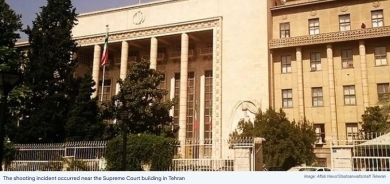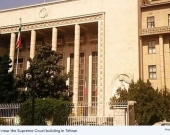Turkish lira at record lows against dollar

The lira tumbled to 2.3616 to the dollar and 3.2345 to the euro in morning trading, after touching 2.33 and 3.20 on Friday.
The Istanbul stock exchange lost by 1.15 percent to reach 63,689.75 points.
Last week, Turkey's central bank ploughed at least $2 billion (1.5 billion euros) into the foreign exchange market to shore up the currency, which has been hitting record lows almost daily this year.
The bank has statutory independence but has been under strong political pressure not to raise interest rates.
The fall of the lira is rooted in an escalating political crisis over the corruptiuon scandal that ensnared key allies of Prime Minister Recep Tayyip Erdogan, as well as concerns about the economy.
But government officials have played down the impact of the crisis on the economy as being only "temporary".
The central bank has so far refrained from raising interest rates to defend the lira amid government concerns that any rise in rates could jeopardise the growth target.
The government has been forecasting that growth will pick up from an expected rate of 3.6 percent in 2013 to 4.0 percent for this year -- still down from more than 8.0 percent achieved in 2010 and 2011.
The European Bank for Reconstruction and Development cut its forecast to 3.3 percent.
Turkey, like other emerging markets, is also vulnerable to US Federal Reserve plans to taper its monetary stimulus as it reduces access to cheaper funds to cover its account deficit, currently at over 7.0 percent of gross domestic product.
The London-based Capital Economics said in a statement that market turbulence in emerging markets including Turkey had led to talk of a "new crisis".
It listed Turkey among those countries which have lived beyond their means and now face a period of weaker growth.
In addition to South Africa, parts of South East Asia and some countries in Latin America, Turkey falls into the category of countries that are "most vulnerable to Fed tapering and the shift towards tighter global monetary conditions over the next couple of years", Capital Economics said.
Analysts say that the Turkish government created an "obsession" about interest rates, prompting the central bank to draw on its foreign currency war-chest but they warn that this response is unlikely to be sustainable.
When the governing Justice and Development Party (AKP) was shaken by nationwide unrest in June, Erdogan blamed various groups, including what he called an "interest rate lobby".
This referred to pressure in some quarters for a rise in interest rates to support the currency and retain foreign capital.
AFP














